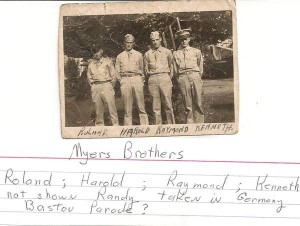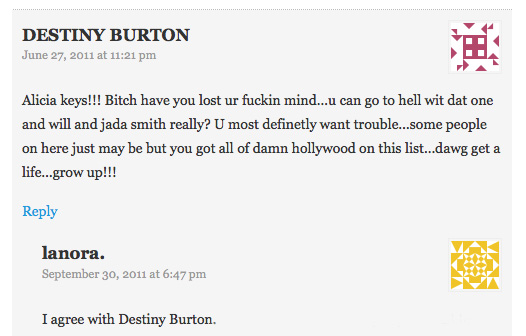 One shame in being sick is the way you let yourself go in terms of showering. I showered Sunday for the first time since Thursday morning. Is it gross? I was glad for the cinnamon sweet orange soap we had in the bathroom. Really? I’m going to blog about soap? I’m going to blog about soap. Cabana Soaps bills itself as a sensory experience, and this is accurate. It’s saying little of a soap that you get to smell it while you wash with it. Every soap smells. Cabana Soaps smell better than most soaps, but they feel good. I feel like I can feel how
One shame in being sick is the way you let yourself go in terms of showering. I showered Sunday for the first time since Thursday morning. Is it gross? I was glad for the cinnamon sweet orange soap we had in the bathroom. Really? I’m going to blog about soap? I’m going to blog about soap. Cabana Soaps bills itself as a sensory experience, and this is accurate. It’s saying little of a soap that you get to smell it while you wash with it. Every soap smells. Cabana Soaps smell better than most soaps, but they feel good. I feel like I can feel how good glad my skin feels when I use them. Also: Zac when he makes soap uses nothing artificial. It’s to other farmers’ market soaps what other farmers’ market soaps are to Dial or something. He’ll ship some to your house!
Blog
BlogWeek, Day Two: Haruki Murakami’s 1Q84
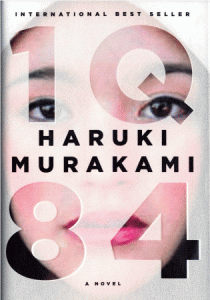 From the end of the fall term until last week, I read 1Q84 (pronounced, right?, /kyoo-teen/ eighty-four?), and I regret the time spent on it. It’s 925 pages. By the end I felt I’d wasted a lot of good hours on a book that should have been 325 pages. Is it a problem with late-career writers, nobody editing them back to decent lengths? I couldn’t finish the last Stephen King book I picked up—Lacey’s Story, was it? Lisey’s?—because after a couple hundred pages I wasn’t halfway through.
From the end of the fall term until last week, I read 1Q84 (pronounced, right?, /kyoo-teen/ eighty-four?), and I regret the time spent on it. It’s 925 pages. By the end I felt I’d wasted a lot of good hours on a book that should have been 325 pages. Is it a problem with late-career writers, nobody editing them back to decent lengths? I couldn’t finish the last Stephen King book I picked up—Lacey’s Story, was it? Lisey’s?—because after a couple hundred pages I wasn’t halfway through.
Look: I like long novels. I liked Infinite Jest, Bleak House, Middlemarch, Portrait of a Lady. I’d like to read Moby Dick. I’d like to read Proust. I’d never argue these novels need to be shorter than they were (because of course history would immediately prove me wrong, as who knows maybe it will with the Murakami). I’m trying to find a solid way to show that the above novels justify their lengths (a tricky task given what we know of Dickens and pay-rates) in ways that 1Q84 does not, and I’m coming up empty.
Or maybe it’s this: if your novel is about one familyless man and one familyless woman and how they come to fall in love, and if you don’t move around in time or space much, and if your secondary characters could all fit comfortably in a Ford Excursion, you don’t have a 900-page novel in front of you. I don’t care how many air chrysalises are being built. I don’t care how swiftly your publisher hires Chip Kidd to turn your overwrought story into a design experience. No debut writer would ever be allowed to get away with this, and why isn’t that more of a problem?
BlogWeek Day One: The Appurtenances of Sickness
 I’ve been sick this weekend with a throat thing and a chills/body-aches thing. Prescribed Chloraseptic throat spray has been mostly unhelpful, but 1000mg acetaminophen every four hours did fine work on the fever/chills/aches.
I’ve been sick this weekend with a throat thing and a chills/body-aches thing. Prescribed Chloraseptic throat spray has been mostly unhelpful, but 1000mg acetaminophen every four hours did fine work on the fever/chills/aches.
Before hearing from the on-call doctor that acetaminophen (which, like “Chloroseptic” I’d prefer to spell with another “o”) was best for body aches, I’d been taking ibuprofen. Of the Big Three in Pain Relief, I take naproxen sodium when I know I’ll be eating regularly, as it lasts longer but will upset an empty stomach. When I can’t eat anything (when, say, hungover) I take ibuprofen. I take acetaminophen never. Is it because I have this notion that it’s older? Or old-fashioned? I’m curious about what the rest of you take. I wish the doctors of the world would agree on some kind of heuristical method. I’d listen. Placebo effects are so strong with me that a doctor could say to get a haircut and dip my toes in bleach and I’d sleep happy and well each night.
Also, the folks over at Gatorade graped up the color of its Fierce Grape variety from what used to be a wrong-but-unscary deep blue, but somehow this has resulted in in a marked grapelessness to the flavor. I’d been a (sorry) fierce admirer, but no longer. Sorry, Gatorade. You’ll need to find another all-star athlete for your endorsements.
Catching Up
Raymond E. Myers: WWII vet, truck driver, active church member
(From the Washington [Pa.] Observer-Reporter.)
Raymond E. Myers, 93, of Coal Center, Clover Hill, died Saturday, January 14, 2012, in Consulate Health Care of North Strabane, Canonsburg.
He was born June 5, 1918, in Claysville, son of the late H. Edwin and Gladys Fonner Myers.
Mr. Myers retired as a truck driver for Peoples Natural Gas.
He was a veteran of the U.S. Army, having served during World War II as an ambulance driver in the 4th Division (Ivy), and participated in several major campaigns in the ETO.
He was an active member of First Baptist Church in Bentleyville and member of West Pike Run Grange.
On March 28, 1942, he married Dorotha Morris, who died December 31, 2003.
Surviving are a daughter, Pamela Madden and husband Ted of Williamsburg, Va.; three grandchildren, Shani Madden of Alexandria, Va., Jenny Ward (Adam) of Fairfax, Va., and Dr. David Madden of Tuscaloosa, Ala.; a sister, Aldene Cox of Washington; and several nieces and nephews.
Deceased are four brothers, Harold, who was killed in action in World War II, Randolph, Roland and Kenneth Myers, and an infant sister, Corina Louise.
Friends are welcome from 6:30 to 8:30 p.m. Monday in Thompson-Marodi Funeral Home Inc., 809 Main Street, Bentleyville, 724-239-2255, where services will be held at 10 a.m. Tuesday, January 17, with Pastor Shirley Edgar officiating. Interment will follow in Maple Creek Cemetery, Fallowfield Township.
In lieu of flowers, memorial contributions may be made to First Baptist Church, c/o Janet Ladisic, 113 Washington Street, Cokeburg, PA 15324. Visit www.thompson-marodi.com to leave a condolence message, order flowers and share photos.
Very Good Paragraphs
From Elif Batuman’s piece in the 19/26 Dec 2011 New Yorker on Göbekli Tepe, the oldest man-made thing in the world:
After my last afternoon at Göbekli Tepe, I decided to devote the rest of the day to the other Urfa pilgrimage—the Abraham one [Urfa claims to house a cave where Abraham was born]. I walked along teeming sidewalks, among street vendors selling pomegranates, lottery tickets, novelty Koreans, fresh pistachio nuts, sherbet, bitter coffee, photocopies. One man was literally selling snake oil—a thing I had never seen before—in addition to ant-egg oil, hair tonic, and unscented soap for pilgrims. Handbills advertised a conference called “Understanding the Prophet Abraham in the 21st Century.” A psychiatrist with a storefront office specialized in “ailments of the nerves and soul.” Most restaurants had signs that said “WE HAVE A FAMILY ROOM!”—meaning that the main dining room was for men only. About eighty-five per cent of the pedestrians were men. Nearly all the women were wearing head scarves, or even burkas. I saw one woman so pious that her burka didn’t even have an opening for her eyes. She was leaving a cell-phone store, accompanied by a teen-age boy wearing a T-shirt that said “RELAX MAN,” over a picture of an ice-cream cone playing an electric guitar. You wouldn’t thin an ice-cream cone could play an electric guitar, or would want to. I was reminded of Schmidt’s hypothesis that hybrid creatures and monsters, unknown to Neolithic man, are particular to highly developed cultures—cultures which have achieved distance from and fear of nature. If archaeologists of the future found this T-shirt, they would know ours had been a civilization of great refinement.
I Agree with Destiny Burton.
Avenues for Irritants
Recent Facebook and Twitter (respectively) complaints about holiday car “antlers” from a friend and then a standup comic (click to enlarge as needed).
Maybe comedy evolved as a way to get people to listen to one’s complaints. Or no wait, that’s what Facebook was invented for. My point here is not anything about quality of cultural critique (friend’s update garnered 10 likes and 21 comments, whereas Delaney’s tweet garnered 28 retweets but only 8 replies), but more about where the comic’s default mode intersects with the poet’s. No ideas but in things. This tweet and all it has to say about those antlers fails completely without that Andie MacDowell sweatshirt.
New Music, Old Book, Local Businesses
One of my resolutions for the new year is to buy one new record a month, at a store here in Tuscaloosa. And not Best Buy or Barnes & Noble, but Oz Music, which has these bumper stickers I’ve been seeing on the more sticker-laden cars around town that say “Support Local Music” or some such.
At any rate, I read somewhere that like most things worth doing, resolutions take practice, and that one should give them a shot in December to see how implementing them for reals is gonna go in January. Today I went in and had fun being a music-store clerk’s dream:
Hi, I’m trying to buy more new music. I have some things I like and things I don’t like. Can you help me find something?
One guy kept pushing Say Anything on me, which sounded from his previews like Blink 182 meets The Bloodhound Gang and I was: Not Interested. I almost grabbed the new Wilco record, but that felt like cheating. Instead I got this:
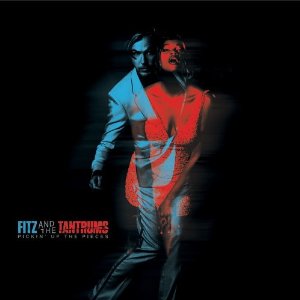
And this:
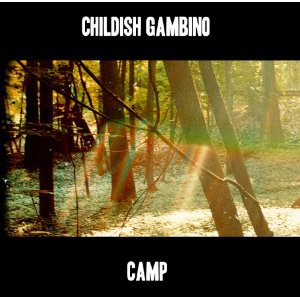
…which latter record was only half a cheat as I knew all about it but had only heard one or two tracks. Then I put both CDs in my car’s 10-disc changer which resides in my car’s trunk, and now I get to actually listen to them rather than get them on iTunes and hope to remember to listen to them.
I haven’t bought a new CD since, oh, maybe The Arcade Fire’s Funeral?
Continue reading New Music, Old Book, Local Businesses
College Applications Asking "Quirky" Questions
(UPDATE: College applicants: Googling “i felt like i truly belonged when brown” is not going to help you get into Brown. Or maybe you’ve got rich folks…what do I know?)
 Here’s a thing I’ve never done, I don’t think: comment on news articles! From , found somewhere on the New York Times‘s Web site:
Here’s a thing I’ve never done, I don’t think: comment on news articles! From , found somewhere on the New York Times‘s Web site:
College applications are increasingly testing students’ brevity, as The Chicago Tribune pointed out on Friday.
[…]
Brown University, for instance, has asked its applicants this year to write—in addition to the newly restrictive 500-word personal essay required by the Common Application—25 or fewer words in response to one of the following, rather ambitious prompts: “I felt like I truly belonged when …” or “If I could do something with no risk of failing, I would …”
I am on board. I’ve written here before about how writers should see things like Twitter and Web-page text boxes as fecund challenges the ways poets do certain strict forms. Ditto for college applicants: Everyone can text thoughtlessly, and everyone can write thoughtless essays in five clunky paragraphs. Brevity takes scrutiny, care, and time. Blaise Pascal: “I have only made this [letter] longer, because I have not had the time to make it shorter.”
Ditto2 for college applicants’ parents:
Susan Van Horn, a mother of two high school seniors in Illinois, told The Tribune that colleges’ application questions this year were “markedly different” from four years ago, when her son applied to school. She also expressed frustration at the 25-word quotas some applications imposed, telling The Tribune, “You find yourself counting characters and editing ‘do not’ down to ‘don’t.’ It gets that silly.”
You are wrong, Susan Van Horn. “Do not” is not unsilly, it’s needlessly formal. You may think a college application is a formal occasion, but these schools are arguing otherwise.
Ideas about the Present for Writers, Or at Least This One
 IDEA ONE
IDEA ONE
This idea is from Nathan Heller’s review in The New Yorker of new books on the incredible Pauline Kael:
In a 1964 essay […] Kael fretted about “structural disintegration” in movies, a loss of the “narrative sense” that used to make even the bad ones palatable. She saw it as a symptom of an atomizing culture. Now Kael went about the business of building a structure in the rubble.
Heller points out two ways she does this, this rebuilding:
- She “toss[ed] away everything that seemed perishable,” and
- She “praised [movies] she thought were daring, fresh, and well made—not just in the context of the season’s releases but by the measure of all art, ever.”
Continue reading Ideas about the Present for Writers, Or at Least This One
Very Good Paragraphs
From Adam Kirsch’s review of recent books on H.G. Wells in the 17 October 2011 New Yorker:
Wells, who was in the audience at [Henry] James’s fiasco [with Guy Domville] and learned from the experience, had his own, considerably more chipper approach to the literary life. “It scarcely needs criticism to bring home to me that much of my work has been slovenly, haggard and irritated, most of it hurried and inadequately revised, and some of it as white and pasty in its texture as a starch-fed nun,” he admitted. But he was not unduly bothered by this: “I have to overwork, with all the penalties of overworking in loss of grace and finish, to get my work done.” Nor, for that matter, did Wells believe that he had any great gifts to squander. “The brain upon which my experiences have been written is not a particularly good one. If there were brain-shows, as there are cat and dog shows, I doubt if it would get even a third class prize.”
I especially love the way Kirsch has taken three separate quotations (no idea on their textual source) and formed them into a kind of frank logic. And but mostly I love the sentiment. More and more these days the idea of waiting to publish until I think a book is great is like a poison I have to keep from infecting my not particularly good brain. Write a book a year, send it out and about, rejoice in any publication, move on from all rejection and write a new book in the new year. Die if not happy then at least happier.
Gifting Gifts
It’s a word I’m torn on. It’s unclear what gifting does that giving does not, and yet the OED cites it in the 16th century. That’s Early Modern English, folks. Old enough for me to throw up the proverbial hands and talk about what I’m gifting or want gifted this gifting season.
Most of this garbage is from the GQ I spent this back-from-a-long-trip evening reading the first half of:
 The Hulger Plumen Compact Fluorescent Lightbulb ($30)
The Hulger Plumen Compact Fluorescent Lightbulb ($30)
Yes, it’s $30, but that it supposedly lasts for 8,000 hours makes up for this price, right? And the thing that we all know by now about CFL’s is that the light they cast is ghastly white and bright and makes everyone’s skin look Twilight-sickly and everyone’s lunch on the verge of being lost. But look what’s going on with that wood right there! A room lit incandescently is a room well lit. And if a room lit incandescently is a room wasting heat energy, then here we have a heat-loss solution that makes me happy to look either at others’ skin or the words that fall on the book I’m reading’s page.
Continue reading Gifting Gifts
Early Xmas Non-Shopping Gift Idea: Signed Book!
 If you go to the Amazon page for The Authentic Animal, you’ll find that the book has all of three customer reviews. One of them calls the voice of its author “arrogant” and who am I to judge?
If you go to the Amazon page for The Authentic Animal, you’ll find that the book has all of three customer reviews. One of them calls the voice of its author “arrogant” and who am I to judge?
The problem is the number of reviews, not their star-rating. I’d like to think we all can do better. So here’s the deal: Whoever writes the best Customer Review for The Authentic Animal between now and Thanksgiving Day will receive a free autographed copy of the book shipped anywhere in the world just in time for the holidays. Here are the rules:
- Neal will judge.
- Reviewers need not to have read the book to review it.
- Reviews can be as long or as short as you like, and can say anything you can come up with to say.
- Reviews can assign the book anywhere from 1 to 5 stars.
- Reviews can be authored by anyone using any Amazon user name. Be sure to email me at amazon [at] davemadden [dot] org to claim whichever username/review is your own.
- Winner will be announced here in early December, with the winning review reprinted and responded to, as needed, by yours truly.
Yes, you should tell your friends. Yes, I will write any message you’d like to the recipient. No, I don’t think this is necessarily a smart way to promote a book.
Good luck!
UPDATE: I was wrong. One of the 3 reviews got deleted. Now there are 2 reviews. The opposite of what I want to happen has been happening. It’s like my freshman year of college all over again.
“Drown in the Tears of Your 20s” — Charles Latham
 This is the bleakest song I’ve heard since “Tom Traubert’s Blues” maybe. From what little I know, Charles Latham is from DC and now lives in Philly (via London). If I had the book with me, I’d quote in advance of the song I’m about to tab from Lorrie Moore’s A Gate at the Stairs, which in addition to being all-over incredible has a bit about tragedy as a luxury for the happy, healthy, and generally well-off. Much of my love for this song comes from its role as a kind of check or reminder, and needing such a thing’s a pretty nice position to be in. But at any rate that book’s in my campus office and I’m on my couch for the time being. Continue reading “Drown in the Tears of Your 20s” — Charles Latham
This is the bleakest song I’ve heard since “Tom Traubert’s Blues” maybe. From what little I know, Charles Latham is from DC and now lives in Philly (via London). If I had the book with me, I’d quote in advance of the song I’m about to tab from Lorrie Moore’s A Gate at the Stairs, which in addition to being all-over incredible has a bit about tragedy as a luxury for the happy, healthy, and generally well-off. Much of my love for this song comes from its role as a kind of check or reminder, and needing such a thing’s a pretty nice position to be in. But at any rate that book’s in my campus office and I’m on my couch for the time being. Continue reading “Drown in the Tears of Your 20s” — Charles Latham
A Writing Life
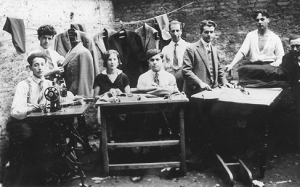 I’m not sure what one of these even is.
I’m not sure what one of these even is.
I.
I spent a week on the road in October reading from The Authentic Animal,*** which was a nice fall break full of all the foliage we can’t quite see in the deep south. I sold fewer copies than there are months in a year. But I also saw people I hadn’t seen in many years. Thank you, Mike. Thank you, Pat. Thank you, Jenn, and Joan, and everyone else that came out.
Continue reading A Writing Life
The San Cranfresca
I’d’ve liked, had I my druthers, to’ve invented a whiskey-based cocktail. But haven’t they all been invented already? Until then, here’s a refreshing cocktail, unseasonable as all hell, so wait until it’s warm out again to imbibe.
Or: live in the South. It’s still, like the fashions, hitting the 80s here.
Recipe
Fill one pint glass with ice
Pour in 40 mL St. Germain Elderberry Liqueur
Pour in 80 mL cranberry juice
Top with Fresca
Squeeze in 1/4 of a lime and stir
Thoughts on Truth, Beauty, and Nonfiction
 I’m teaching a graduate seminar on plot and structure in novels and NF books. Today was Skloot’s Henrietta Lacks. The students had concerns about the ethics of writing (and potentially profiting off of) another person’s story. I had concerns about nonfiction writing and our formal or casual assessment thereof.
I’m teaching a graduate seminar on plot and structure in novels and NF books. Today was Skloot’s Henrietta Lacks. The students had concerns about the ethics of writing (and potentially profiting off of) another person’s story. I had concerns about nonfiction writing and our formal or casual assessment thereof.
Here’s where I was coming from: I can go along with the notion that assessing whether an unpackaged text is fiction or nonfiction is way less interesting or important than assessing whether it’s just good. I’m not sure, though, that we can use the same set of tools. I’m not sure that what makes a work of fiction good—in the writing, that is—is the same as what makes a work of nonfiction good. Ditto bad fiction. When we recognize bad fiction, its relation to good fiction is of a different sort than bad NF’s relation to good NF. Or?
These are ideas I tossed at my students and we had the kind of discussion I got energized by and like happily increased blood pressure from. (Not sure this was the students’ response.) They had all sorts of characterizations for good writing. Beautiful sentences. Varied sentence structures. Thematic richness. Interiority with respect to characterization. I agreed with all these but was less than satisfied. The problem for me: aren’t this fictional techniques? Aren’t these writerly moves we use to make fiction work? Because nonfiction’s prose, do they just naturally apply?
When I write NF—right now, for instance—I do things with my writing—things other than use “I” and talk about my life and the world we live in—that I don’t do when I write fiction. I come to NF with a different toolbox. What, though, is in this toolbox I haven’t yet been able to characterize. Also, what’s in it that I don’t have and cannot use in my fiction toolbox?
It’s probably more backstory than you need. I’m not even at this post’s topic yet. Amid my prompting for ways we know writing is good, one student spoke up and mentioned truth. Fiction and nonfiction have different relationships to truth, but truth is central to what makes both of them great.
It’s almost the answer I spent probably too long looking for.
Continue reading Thoughts on Truth, Beauty, and Nonfiction
Very Good Paragraphs
From Peter Hessler’s bit on a small-town druggist in the 26 September 2011 New Yorker:
In his will, [former customer] Mr. Brick left more than half a million dollars in cash and stock to the local druggist[, Don]. After taxes and other expenses, it came to more than three hundred thousand dollars, which was almost exactly what the community owed Don Colcord [for drugs and other services rendered]. But Don didn’t seem to connect these events. He talked about all three subjects—neglecting his dying brother, offering credit to the townspeople, and helping Mr. Brick and receiving his gift—in different conversations that spanned more than a year. He probably never would have mentioned the money that was owed to him, but somebody in Nucla told me and I asked about it. From my perspective, it was tempting to apply a moral calculus, until everything added up to a neat story about redemption and reward in a former utopian community. But Don’s experiences seemed to have taught him that there is something solitary and unknowable about every human life. He saw connections of a different sort: these people and incidents were more like the spokes of a wheel. They didn’t touch directly, but each was linked to something bigger, and Don’s role was to try to keep the whole thing moving the best he could.
This, in a piece where the author’s self is kept chiefly out of the action. Some of the best NF writing on NF I’ve seen in a long while.
An Idea
(An old one, found in a notepad I’ve since filled and checked to see what was throwawayable.)
- Taxidermy introduces you to an animal you’d never get to know otherwise.
- The New York Review of Books summaries books you’d never find the time to read.
- Nonfiction brings you closer to people you’d never meet face-to-face.
Each of the above involves some act of destruction:
- An animal dies.
- Your possible reading experience is tainted.
- People have their lives and words taken from them and appropriated.
Q: How does (or how can) NF assuage this damage/destruction?

